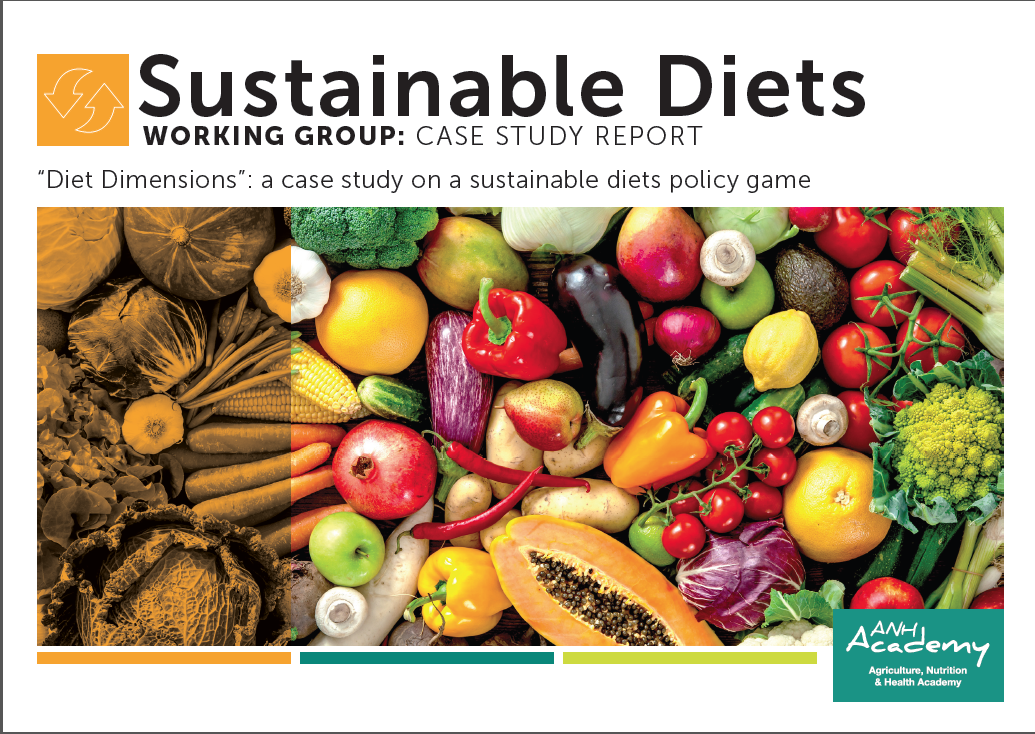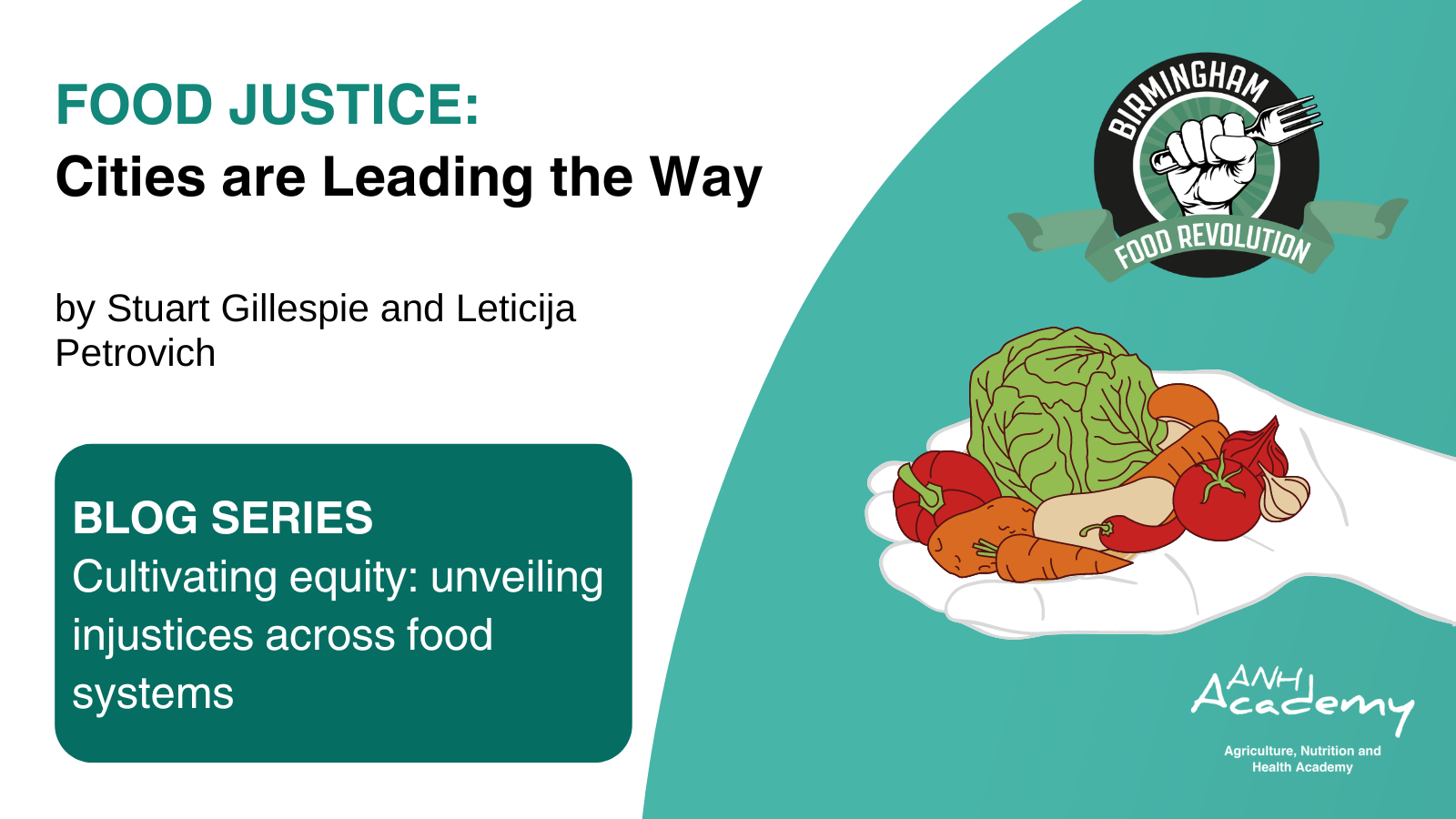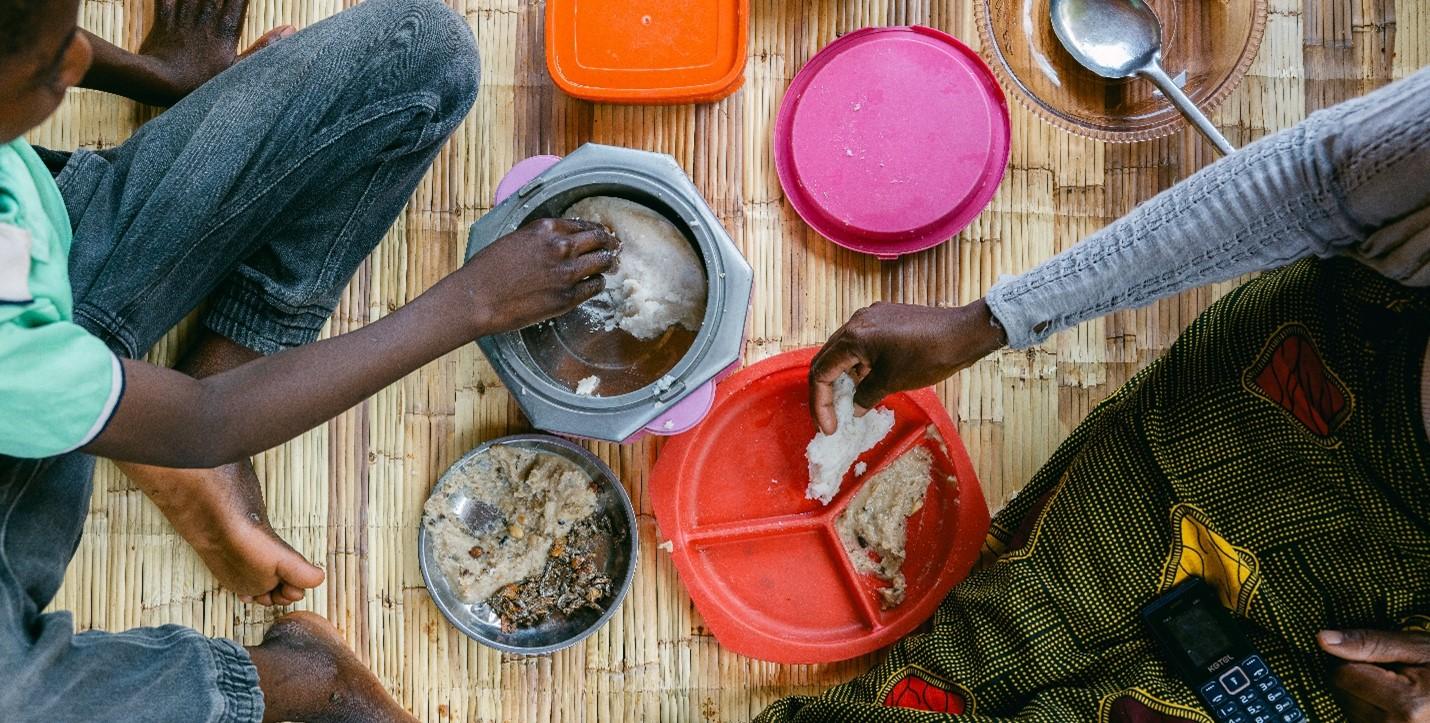The Scaling Up Nutrition (SUN) Movement’s Global Gathering brings together policymakers, practitioners and actors from various sectors around the world. What these 1000+ people have in common is a shared commitment to pursuing wholesale improvements in malnutrition globally and locally in their respective countries. The SUN Movement brings together these stakeholders in multi-sectoral nutrition policy making and programming, with the annual Global Gathering providing an opportunity for SUN country teams to share experiences and develop country nutrition plans.

This year’s Global Gathering took place in Côte d'Ivoire, West Africa where Edward Joy of the ANH Academy was invited to help arrange an innovative workshop which aimed to stimulate novel ideas for improving national nutrition strategies. Together with Patrizia Fracassi of the SUN Movement secretariat, Edward adapted Diet Dimensions – a live, social game recently co-developed by the ANH Academy. The game provides a great way to run an interactive session involving brainstorming on a challenge followed by pitching and critiquing among peers. The process acts as a catalyst for considering potential benefits, challenges and trade-offs when developing and introducing multi-sectoral policies. The new version of the game was designed to help country teams develop their National Nutrition Strategies, and Patrizia ran a successful test session at a SAFANSI Regional meeting in Kathmandu, Nepal in September 2018.
In its original form the game is played over three hours by approximately 20–30 people, split across four to six competing teams. However, by the game design is highly adaptable and for the SUN Global Gathering over 100 stakeholders from 48 countries took part in a slimmed-down version over a period of 1.5 hours. Participants split into their actual country teams and were asked to identify possible weak spots in their national nutrition strategies, and to think up policies to address these before pitching their ideas. The opposing teams then provided constructive criticism including advice and lessons learned from their own experiences and regions. Given the limited time for the session, country teams were not expected to make substantial plans to follow through on, rather, the objective of the session was to encourage teams to draw on the expertise of fellow SUN teams and recognise what valuable lessons can be learned by sharing experiences.
After the battle stage the teams then reconvened as a larger group to discuss key discussion points. A common theme among most groups was the challenge of ensuring ownership of programmes while involving multiple ministries and other stakeholders, something which has critical consequences for ensuring accountability. Another talking point was the problem of ministries competing for donor funds, so some teams suggested pooling resources across ministries to increase collaboration. The need to replicate cross-sectoral collaboration at subnational levels was also noted, as well as the need for appropriate governance structures for National Nutrition Strategies to be established from the outset. For instance, a separate “ministry” tasked with delivering on nutrition goals and reporting to the Office of the President might be a better way of ensuring multi-ministry accountability, rather than giving the role to a single line ministry. There was consensus around the importance of balancing top-down and bottom-up approaches to nutrition strategies. Finally, one team highlighted their experience of using targeted messaging to increase public buy-in, for example with messaging such as “good nutrition is important if you want your kids to be smart”.
Adapting and playing the game in this forum demonstrated the flexibility of the Diet Dimensions game for different objectives and settings. The game was developed by researchers but was clearly applicable for a policy crowd. Notably, participants enjoyed the session and there was excellent engagement and energy in the room – something that can be hard to achieve in high-level policy discussions! Valuable lessons were learnt between country teams, and hopefully these may filter through to improved national nutrition strategies. It serves as further proof that in striving for improvements in nutrition time is never wasted in learning and sharing with others, whose experience, expertise and knowledge are a valuable resource for policy development.
To learn more about the policy game and how you can adapt it for a setting of your choice, visit the Sustainable Diets Working Group or read the Diet Dimensions Case Study Brief, which includes instructions on how to play.







